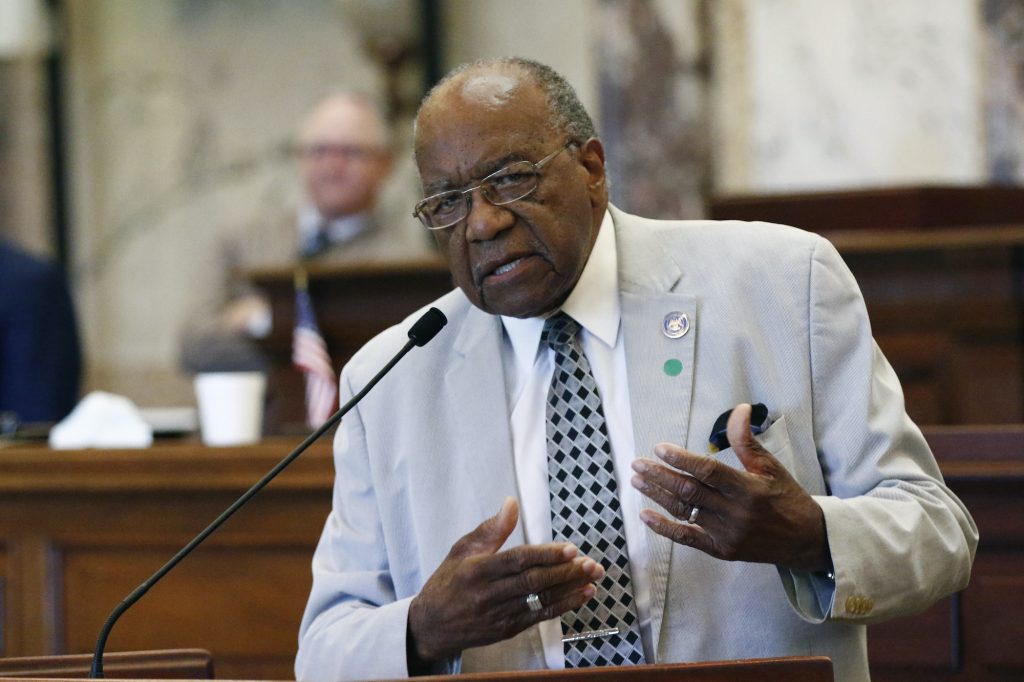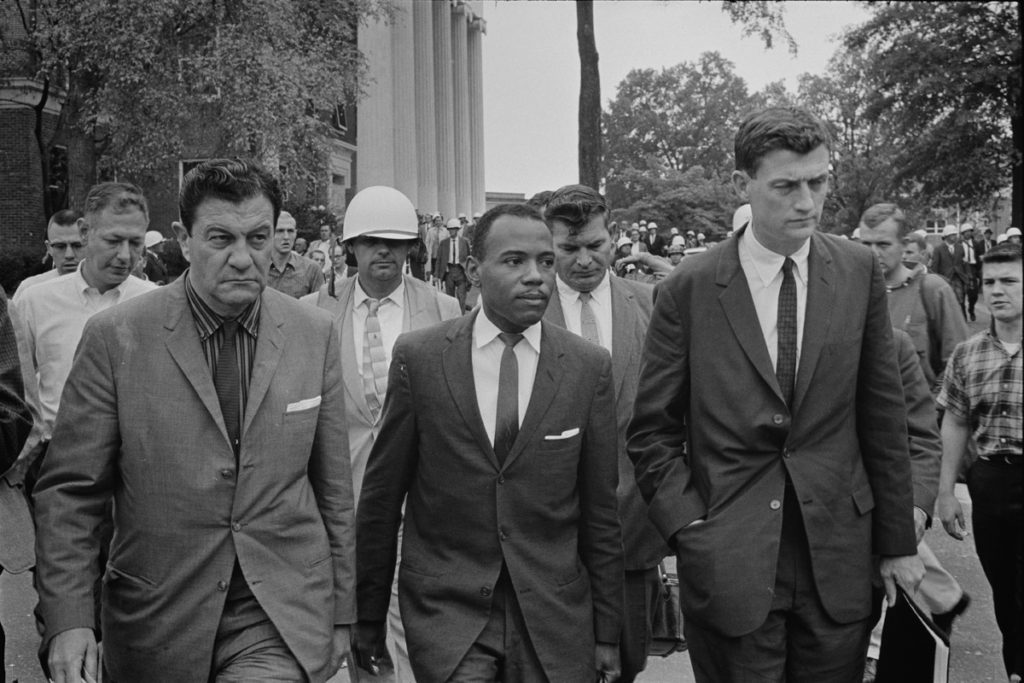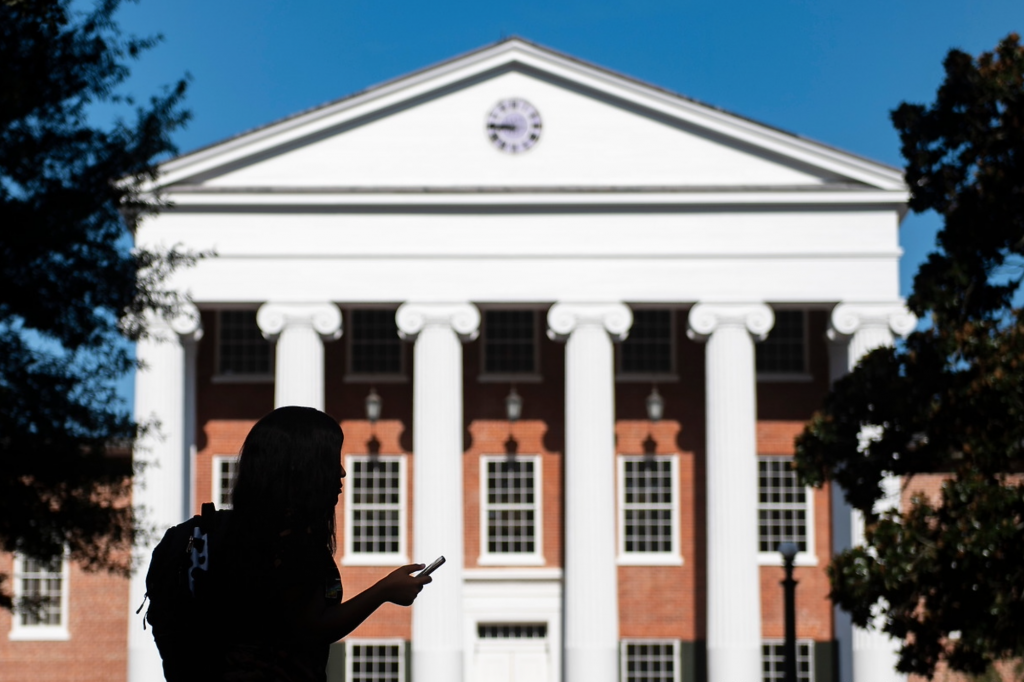University of Mississippi student and faculty leaders adopted separate resolutions Tuesday night condemning political efforts to control what educators are allowed to teach about race.
“Whereas state legislative proposals are being introduced in Mississippi and across the United States that target academic discussions of racism and related issues in American in history in schools, colleges and universities; … therefore be it resolved that the Senate of the Faculty of the University of Mississippi rejects any attempts by bodies external to the faculty to restrict or dictate university curriculum on any matter…,” the Senate Faculty’s resolution reads.
Faculty senators at the university in Oxford, Miss., voted to adopt the resolution on a 32-to-8 vote.
The move comes as the Mississippi Legislature is considering Senate Bill 2113, which Republicans claim would ban critical race theory—a topic that the text of the bill never addresses.
‘Devaluing Our Educational Experience’
In its own vote last night, the University of Mississippi’s Associated Student Body declared its opposition to the bill as The Daily Mississippian first reported, saying in a resolution that “Mississippi Senate Bill 2113 undermines the quality and fundamental purpose of public higher education, which the University of Mississippi has financially invested in to bolster its merit and reputation in the past decades.”
S.B. 2113 says that “no public institution of higher learning, community/junior college, school district or charter school shall direct or compel students to affirm that any sex, race, ethnicity, religion or national origin is inherently superior, or that individuals should be adversely treated based on such characteristics.” Though the bill’s authors suggest that is a description of critical race theory, it is not.

The Encyclopedia Britannica defines critical race theory as an “intellectual movement and loosely organized framework of legal analysis based on the premise that race is not a natural, biologically grounded feature of physically distinct subgroups of human beings but a socially constructed (culturally invented) category that is used to oppress and exploit people of colour.”
The ASB notes that the University of Mississippi School of Law’s Law 743 class is the state’s only critical race theory class. The UM Law School course catalog says that the course “dissects the social construction of race’s impact on legal history and conducts a study of the American Jurisprudence’s treatment of racial and social issues.”
Nationally, political activists, often funded by wealthy right-wing donors, have campaigned against so-called “critical race theory.” The opponents often falsely present Nicole Hannah-Jones’ “1619 Project” and other works about the nation’s racist past as examples of critical race theory, but the attacks have even targeted books like Mississippi author Angie C. Thomas’ “The Hate U Give,” a young-adult novel about a high school student who witnesses a police shooting.
Though S.B. 2113 does not actually describe critical race theory, the ASB warned that its “ambiguous language and intent allows for the government to withhold academic funding for even undefined grievances as vague as ‘compelling students to personally affirm, adopt or adhere to’ certain opinions on sex, race, religion, ethnicity, and national origin.’”
“Mississippi Senate Bill 2113 limits students from learning, exploring, researching, and challenging different viewpoints in academic settings, thus devaluing our educational experience in comparison to other public institutions” and risks “setting a precedent that the Mississippi Legislature has a right to legislate academic materials that inhibits the thoughts and freedom of students,” the resolution says.
When the Mississippi Senate passed S.B. 2113 last month, all 14 Black senators walked out in protest. The bill passed with support from only white senators. It passed with support from white Republicans only. Like UM, leaders at the University of Southern Mississippi in Hattiesburg and Mississippi State University in Starkville have also passed resolutions condemning political efforts to control education on race.
‘Stand Firm Against Such Encroachments’
The University of Mississippi is steeped in the state’s white supremacist past, including its history of slavery, Jim Crow and incarceration. When the University of Mississippi admitted James Meredith, its first Black student, in 1962, a deadly clash ensued on campus, requiring President John F. Kennedy to call in the national guard. The university has repeatedly found itself at the center of race controversies in the decades since.

In 2018, the journalism school changed its name after its founding donor wrote social-media posts criticizing Black women on campus. Later reporting by the Mississippi Free Press in 2020 revealed that the journalism school’s dean and another university donor had been involved in the incident, but those aware of the deeper involvement swept it under the rug. Until 2020, a Confederate monument stood at the center of the campus. Amid the national race reckoning in 2020, the administration controversially moved it to a Confederate cemetery instead.
“The University of Mississippi has public, historical connections to slavery and racial injustice, necessitating that avenues of contextualization and discussions about race relations in a classroom setting should be accessible without the fear of breaching Mississippi Senate Bill 2113 and suffering legal/financial reprecussions, due to the vagueness of the legislation,” the ASB resolution said.
In its resolution, the UM Faculty Senate called on Chancellor Glenn Boyce and Provost Noel Wilkin “to affirm that they reject and will resolutely resist any attempts by bodies external to the faculty to restrict or dictate university curriculum on any matter, including matters related to racial and social justice, and will stand firm against such encroachments.”
The administration did not respond to a request for comment, but did send a statement from the provost after this story first published.
“As provost, I appreciate the service of the members of the Faculty Senate and their efforts to convey the concerns of the faculty they represent,” Wilkin said. “I have spoken with our Faculty Senate leadership about this matter, and will continue to work with them directly.”










